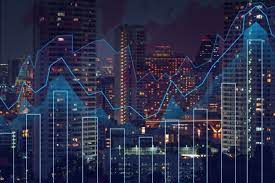In today’s fast-paced world, resources are becoming scarce and the need for sustainability is gaining prominence. In such a situation, adopting the concept of smart cities is of utmost importance. A smart city makes use of intelligent technology and data management solutions to enhance its overall operational excellence.
Not only does the right technology use improves how smoothly the city runs, but also provides a better quality of life for all its residents and aids its constant economic growth. Let us take an in-depth look at the future of smart cities in India and the rest of the world:
Important statistics related to market size and share of smart cities
The onset of the pandemic has made the world sit up and take notice of smart cities. A city where data exchange is fluid and data analysis is essential for better environmental excellence is extremely sustainable. In 2021, the worldwide market size of smart cities was roughly USD 457 billion. This value is expected to double in the coming years. By the year 2026, the market size can reach close to USD 900 million across the globe. Using a smart backup solution and utilities, India can be a big player in the concept.
Important future smart city trends for the coming decade
The coming decade will see more sustainable smart cities being developed all over the world and India is no exception. Smart health is expected to be the most prominent smart city trend in the upcoming decade. Using tailored data analytics and data management solutions, customized healthcare can be provided to all citizens. This can include remote health monitoring systems and AI-based health coverage plans.
Since the core of smart cities is to facilitate environmental sustainability, an important future trend will be smart energy. With the help of an innovative energy backup solution, renewable energy can be expected to take the centre stage in the coming years. Cities like Amsterdam and Beijing have already deployed technology like smart meters and pollutant monitors to reduce pollution. Self-sufficient smart cities will be on the rise in India as well as other countries by harnessing renewable and clean sources of energy.
Infrastructure is also expected to be one of the hottest trends in 2022 to 2030 for smart cities. The use of IoT applications and devices on the public as well as private property will revolutionize the world. The introduction of 5G technology in India will facilitate better public infrastructure, including lighting sensors, waste treatment, and traffic control.
Growth of smart cities in 2022 to 2030
The whole world is coming up with new smart cities every year. This trend is expected to intensify in the coming decade. Under the Smart Cities Mission, India has already started the work on a hundred chosen cities. Cities like Ghaziabad are being worked on to incorporate revolutionary data-based technology. 2023 is expected to witness the completion of over 7000 projects in various smart cities of the country. Worldwide, there is expected to be increased collaboration between the state machinery and the public in the drafting of policies and frameworks. Confident urban planning, backup solution, and highly-operational transport systems can mobilize the entire globe to accommodate the needs of current as well as future generations.
If you are interested in learning more about and adopting smart technology to keep up with the changing times, Intelli Vectra Technologies can be your one-stop destination. Intelli Vectra Technologies specializes in transformative IoT and AI-based technology for building and maintaining smart cities. Right from data management solutions and cloud solutions to smart networking and infrastructure services, Intelli Vectra Technologies harnesses cutting-edge technology to work towards a more sustainable future.
Summary
The world is in dire need of smarter and more innovative technology to accommodate the needs of a growing global population. Since the rate of urbanization is extremely high in countries like India, the future of habitation is smart cities. Using the right data management solutions, smart cities can offer a better standard of living for all. Smart traffic solutions, healthcare systems, environmental sustainability, and public engagement can be brought about by IoT-based technology. Constant data exchange and analytics are the core of this concept. Currently, smart cities are on the rise and this trend is expected to gather momentum in the coming decade.
